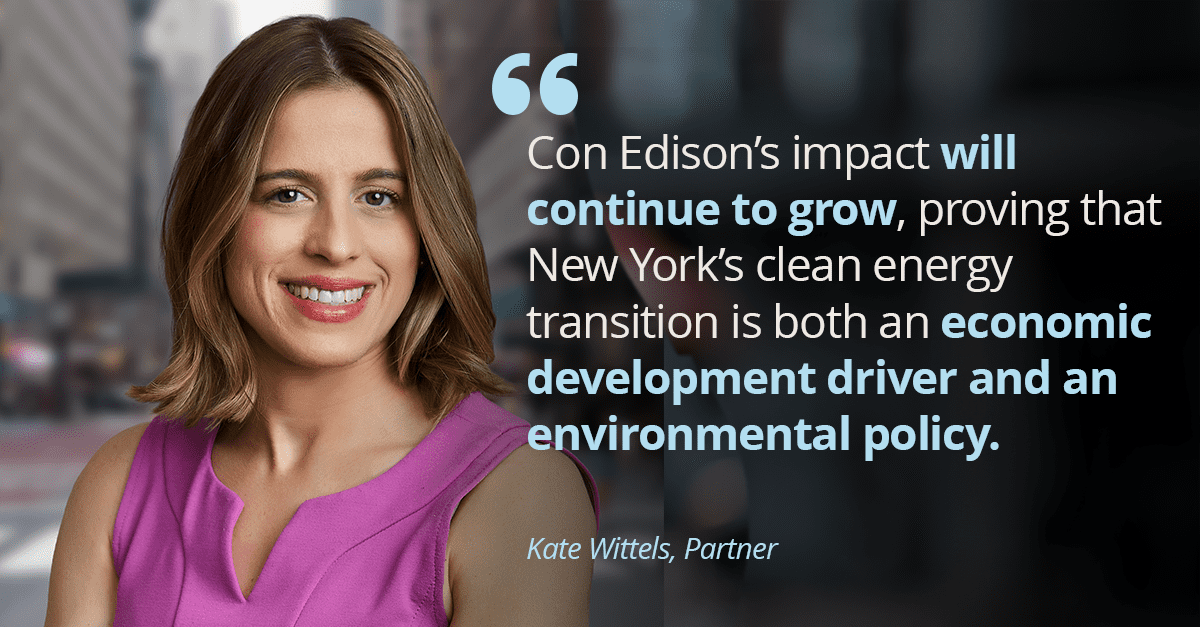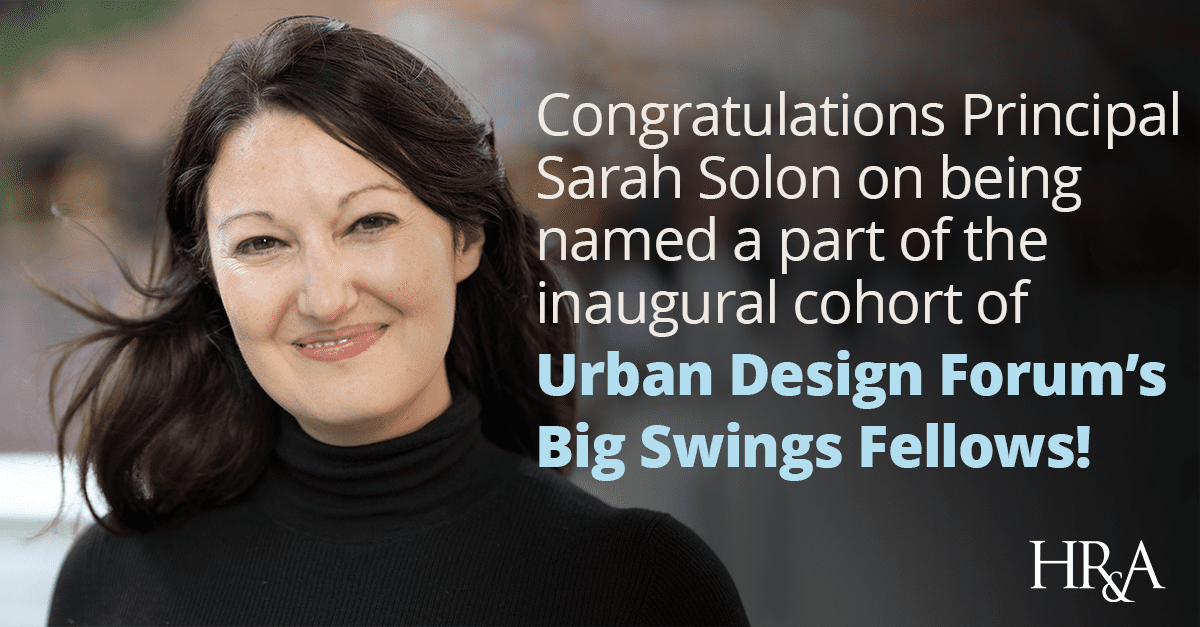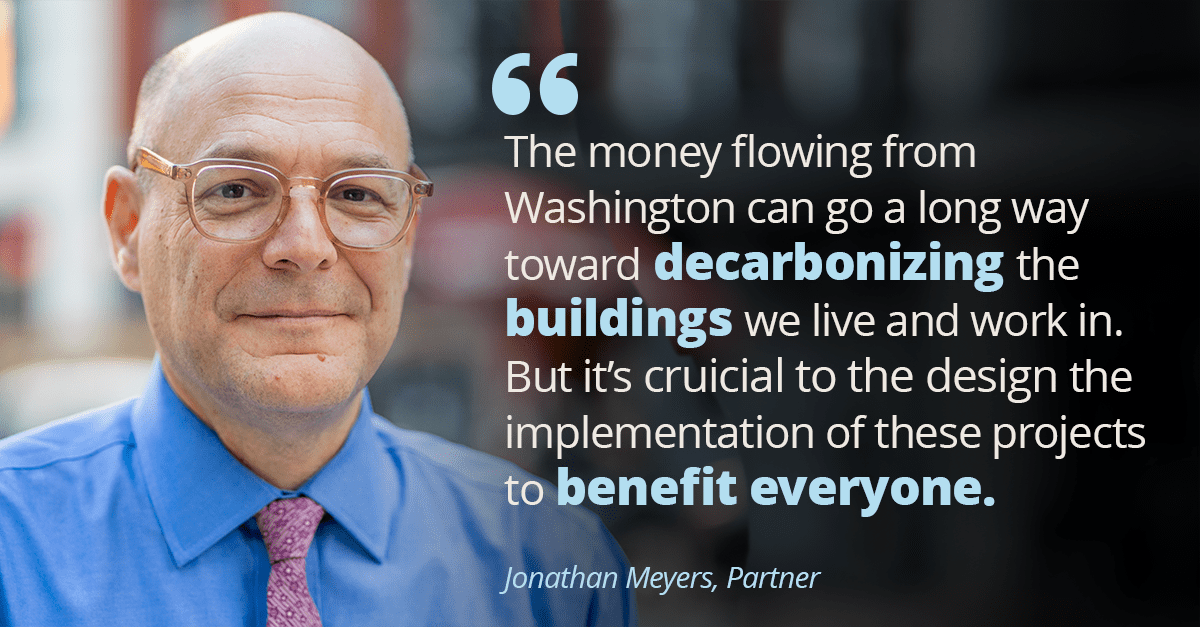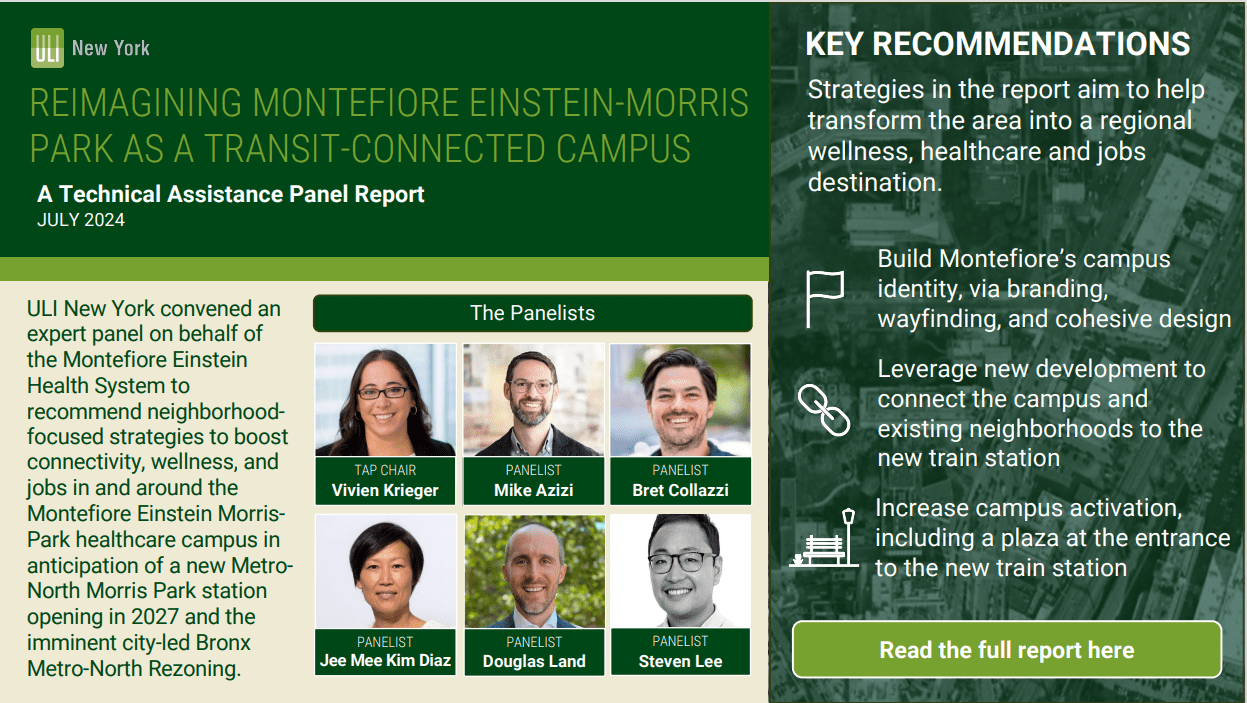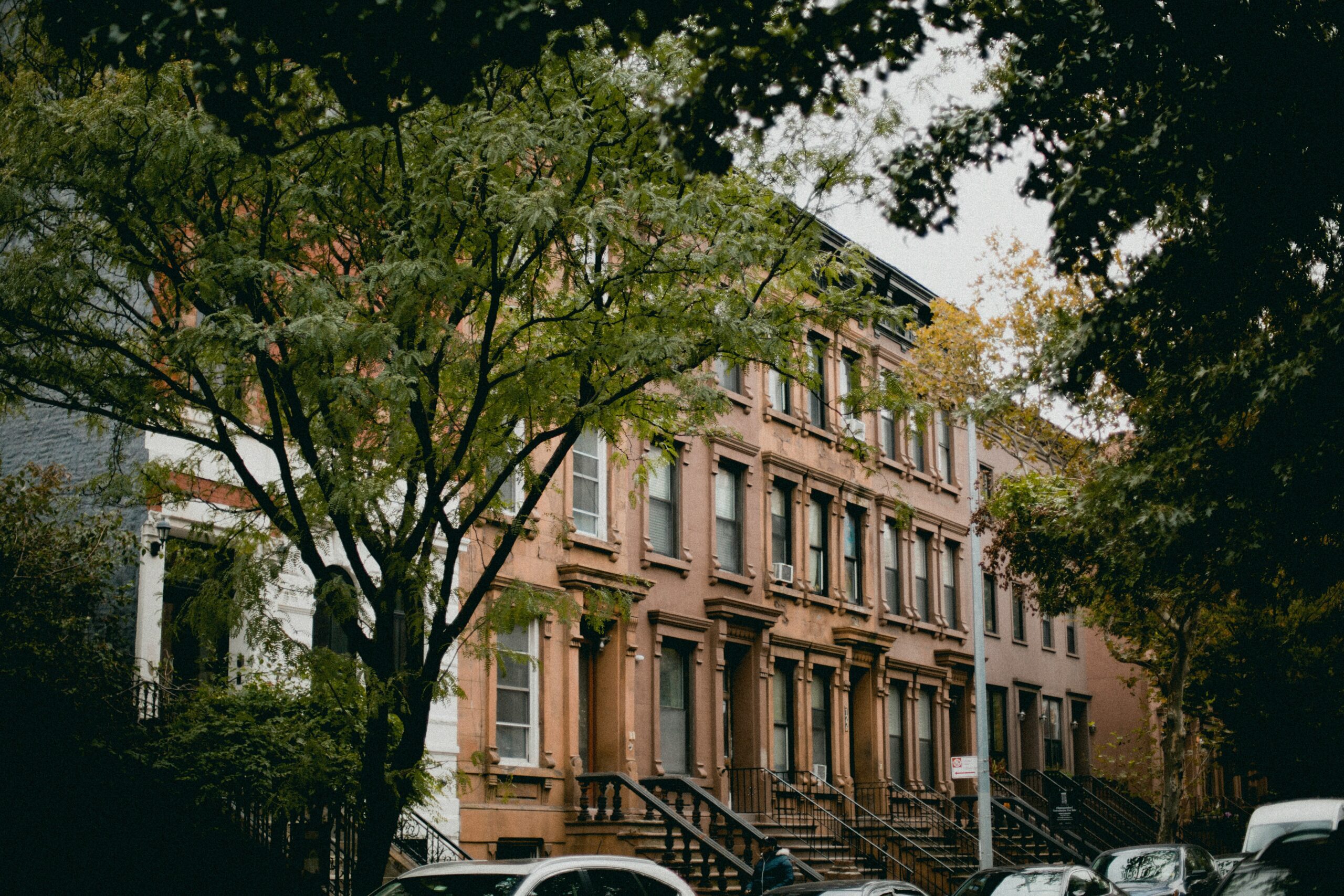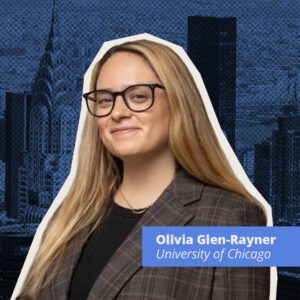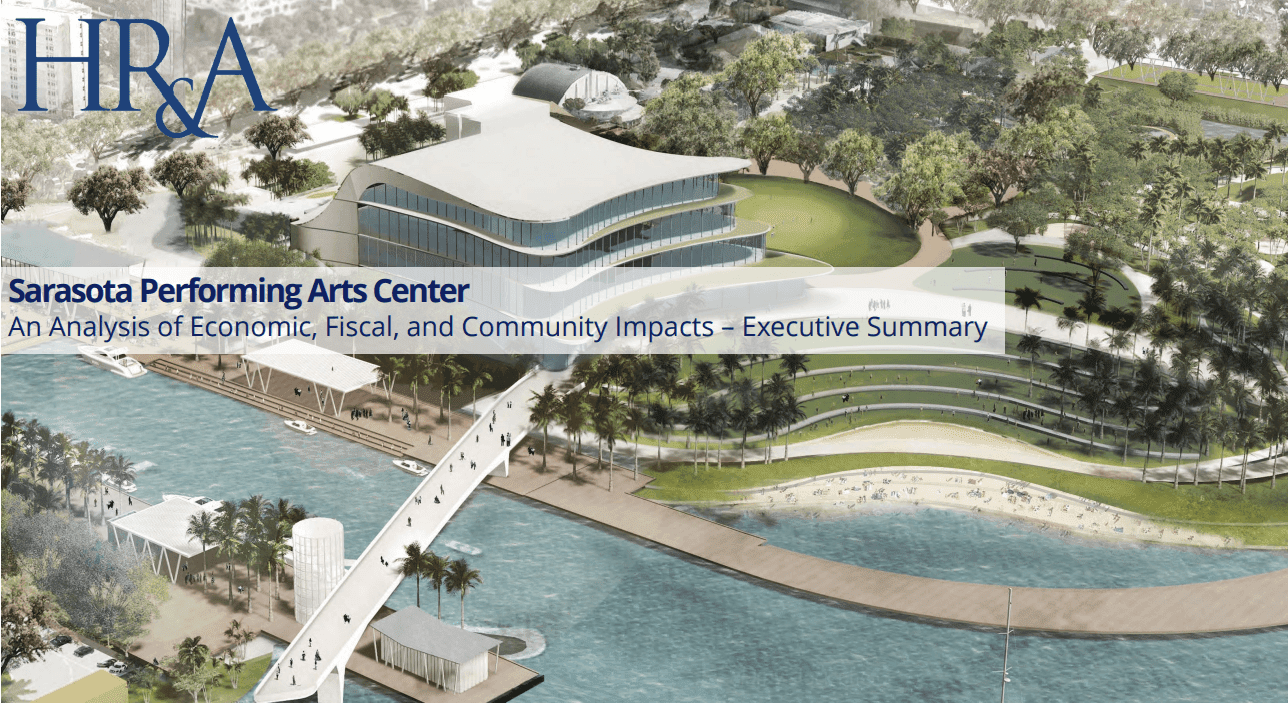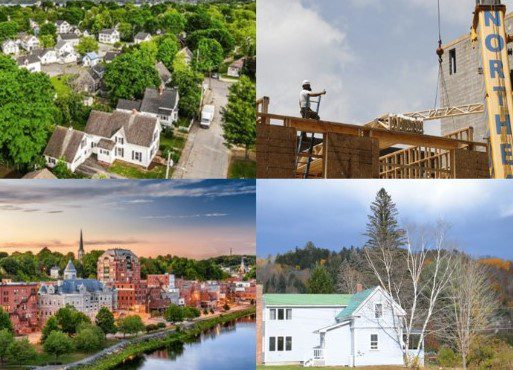This press release was originally issued by Con Edison.
Economic Impact Report: Company Contributes $22.6B in Economic Activity; Supports More Than 38,000 Jobs in 2023
Con Edison contributed $22.6 billion in economic impact to New York State in 2023. The company’s investments in the clean energy transition, and in resiliency projects that protect system reliability during more extreme weather conditions drove a 20 percent increase ($3.8 billion) over 2021, according to an economic impact report released today.
The company supports 38,600 jobs in New York State and spent $1.1 billion in contracts with businesses in the five boroughs and Westchester County.
It also increased its contracts with Small, and Minority- and Women-Owned Businesses, the backbone of the New York City economy, by 45 percent from 2021 to 2023 to more than $550 million.
Con Edison also delivered more than $3.3 billion in tax revenue paid by customers to New York City to support city services, including $2.4 billion in property taxes alone. Con Edison customers are responsible for 4 percent of New York City’s tax revenue, nearly enough to cover the budgets of FDNY (Fire Department of New York) and DSNY (NYC Sanitation Department) combined.
“This report shows the essential role that Con Edison plays in our region’s vibrant economy and in making this the best place in the world to live, work and visit,” said Tim Cawley, chairman and CEO of Con Edison. “Our investments reflect our values and the values of our customers. We support Small, and Minority- and Women-Owned Businesses, create jobs and facilitate the payment of billions of dollars a year in taxes to support the communities we serve, all while leading the transition to clean energy. We are demonstrating that the people of Con Edison, and the services we provide help local businesses prosper, lift incomes for more New Yorkers, and support more investment in our local community.”
The Economic Impact Report created by HR&A Advisors, Inc. (HR&A) for Con Edison quantifies the company’s economic and fiscal impacts to customers, retirees, unions, shareholders, and industry and civic associations in 2023. This is the second report HR&A submitted to Con Edison. The first was in 2021.
“Con Edison contributes to New York’s economy in ways that positively impact the millions of New Yorkers it serves,” said Kate Wittels, partner at HR&A. “As Con Edison continues investing in its system to serve customers during more extreme weather events, and enabling its customers transition to clean energy, the company’s impact on the state’s economy will continue to grow, proving that New York’s clean energy transition is an economic development driver and an environmental policy.”

Purchasing Power: Small Businesses and M/WBEs
In 2023, the company spent $1.1 billion with companies in Westchester County and the five boroughs of New York, with another $700 million spent with companies located elsewhere in New York State.
31 percent of Con Edison’s in-state contracts were awarded to M/WBEs and small businesses in 2023. The company has invested significantly in developing its relationships with M/WBEs and small businesses through our supplier diversity program. Con Edison encourages suppliers to reach out if they are interested in doing business with the company.
Jobs
The report found that Con Edison supports 38,600 jobs in New York State, including direct, indirect, and induced jobs. For every Con Edison employee, the company supports another 1.9 jobs in New York State. That number reflects an 18 percent increase in total jobs since 2021 including 1,000 direct jobs.
-
-
- 80 percent of Con Edison’s workforce lives in New York State.
- More than 75 percent graduated from New York State-based public and private colleges and universities.
- 59 percent of Con Edison’s employees are people of color.
- 23 percent are female.
“We applaud Con Edison for being a critical industry partner in supporting Mayor Adams’ vision to create a more inclusive economy where all New Yorkers can share in our economic growth and prosperity, and today’s announcement further demonstrates the integral role Con Edison continues to play for our city’s people and businesses,” said Abby Jo Sigal, executive director of the NYC Mayor’s Office of Talent and Workforce Development. “For generations, Con Edison has been a source of good paying, union jobs that have provided pathways to economic mobility, and its recent commitments to invest in clean energy and support disadvantaged communities will help make the city more sustainable, prosperous and inclusive as we transition to the green economy of the future.”
Con Edison works with organized labor to ensure jobs are high quality, safe, and family-sustaining. More than 55 percent of Con Edison’s workforce is represented by the Utility Workers Union of America and International Brotherhood of Electrical Workers. This level of representation is more than 2.5 times the industry average.
Con Edison is helping New York meet its urgent need for clean energy workers by investing in green job training, with a focus on helping residents of disadvantaged communities. Over the next three years 1,200 individuals will have the tools they need to begin their careers in energy and technology. Through Con Edison’s $4 million in grants, four New York nonprofit organizations will support clean energy and technology workforce training for people in disadvantaged communities.
Taxes
Con Edison facilitated the payment of $4.4 billion in taxes and fees in 2023. Of these, $2.4 billion is New York City property taxes, which represents 8 percent of the total property taxes New York City collected. Con Edison customers are paying 11 times the amount paid by the City’s luxury hotels, as a point of comparison. And the City’s assessment on Con Edison infrastructure continues to grow, with 2023 tax payments 14 percent higher than in the prior report.
Protecting the Most Vulnerable New Yorkers
Con Edison advances environmental justice in its service territory through clean energy programs that benefit customers in communities New York State identified as disadvantaged.
The company encourages low-income customers and those living in disadvantaged communities to take advantage of programs and incentives for energy efficiency improvements, financial assistance on customer bills, and workforce development programs.
Con Edison invested $658 million in disadvantaged communities on clean energy and electric infrastructure improvements in 2023, and more than $34 million in energy efficiency incentives benefited low- and moderate-income households.
477,000 low-income customers receive rate discounts totaling over $266 million on their energy bills through programs administered by Con Edison.
-
-
Creating Financial Security for City and State Pensioners
In addition to spending from Con Edison’s operations, the New York economy benefits from the dividend payments and value appreciation of Con Edison stock, which provides financial security for millions of shareholders, including more than 731,000 current and former New York and New Jersey public sector employees through city and state pension funds.
About the Economic Impact Report
HR&A Advisors, Inc. analysis incorporated findings from a wide range of datasets and industry-standard economic impact assessment tools to evaluate the economic and fiscal impacts of Con Edison to New York City, Westchester, and New York State in 2023.
